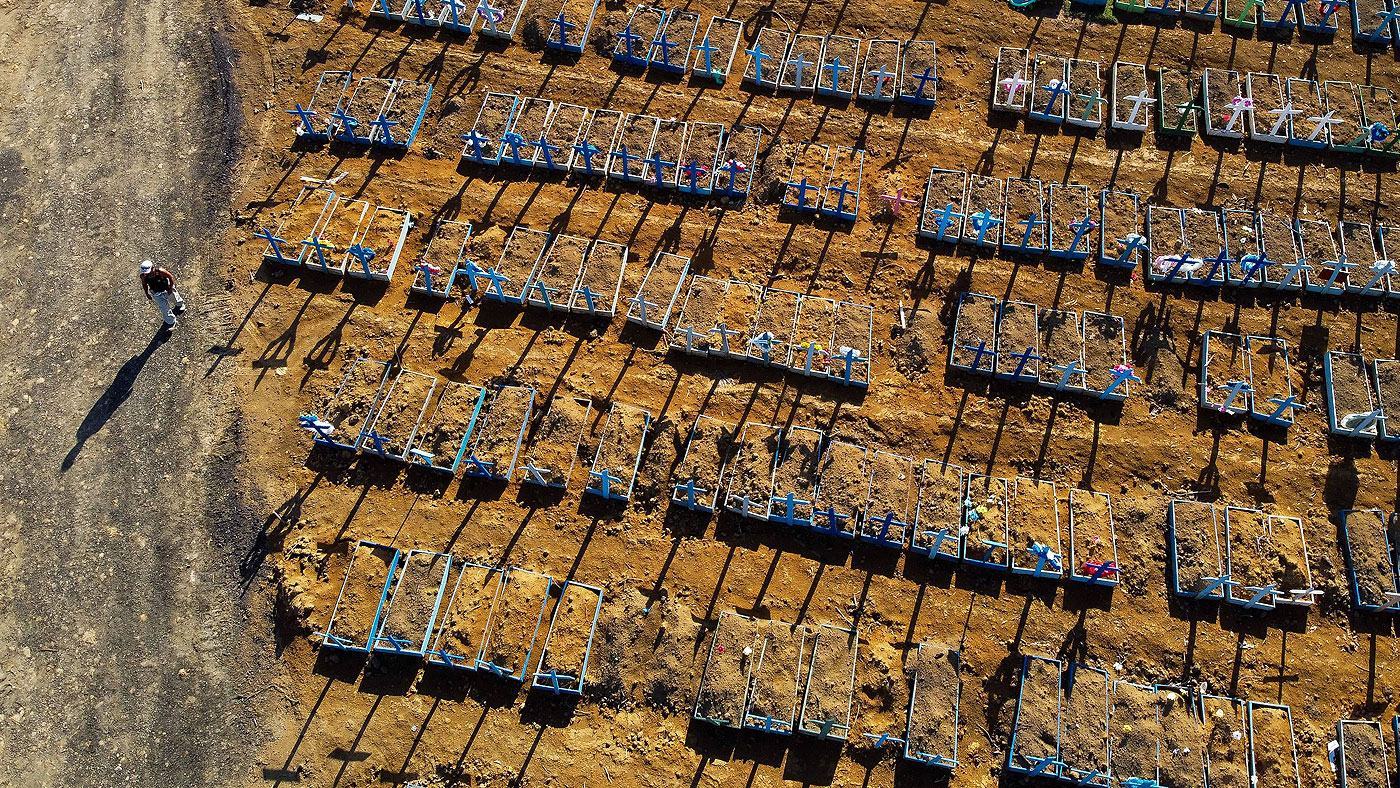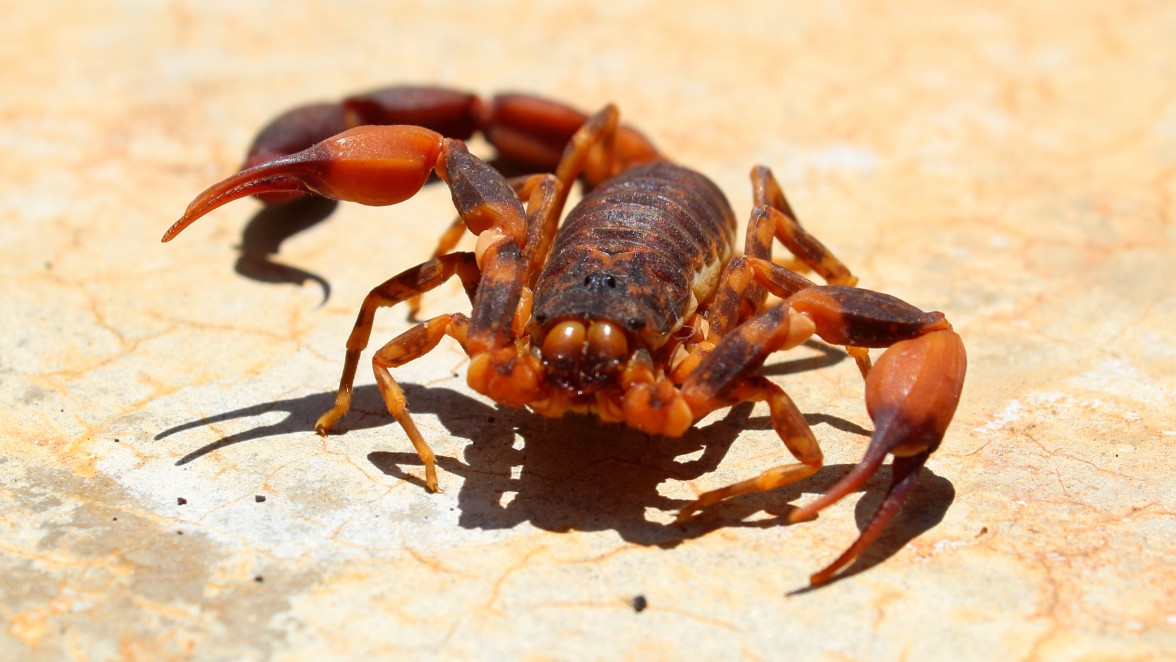How an Amazonian city that shunned lockdown may have hit herd immunity
The authorities in Manaus made little attempt to halt spread of Covid-19 - yet the virus seems to have run out of steam there

A free daily email with the biggest news stories of the day – and the best features from TheWeek.com
You are now subscribed
Your newsletter sign-up was successful
Located deep in the Amazon rainforest, Manaus has always been a coronavirus outlier.
Having been cited as a warning lesson at the beginning of the pandemic, the Brazilian city now provides scientists with a puzzling case study in how Covid-19 might behave if left unchecked.
“Manaus was once a symbol of the threat that the virus might pose to the developing world,” says The Times. “Drone images of mass graves caused alarm around the world four months ago as Covid-19 ravaged the city and burials were running at five times their normal rate.”
The Week
Escape your echo chamber. Get the facts behind the news, plus analysis from multiple perspectives.

Sign up for The Week's Free Newsletters
From our morning news briefing to a weekly Good News Newsletter, get the best of The Week delivered directly to your inbox.
From our morning news briefing to a weekly Good News Newsletter, get the best of The Week delivered directly to your inbox.
Hospitals ran out of beds, oxygen and stretchers, and gravediggers couldn’t keep up with the backlog of bodies.
“But then, unexpectedly, it started to let up - without the interventions seen elsewhere,” The Washington Post reports.
The city has never imposed a lockdown, encouraged social distancing or required face masks, yet excess deaths have dropped from about 120 per day in May to “practically zero”, says the newspaper.
Precisely why the virus has fizzled out remains unclear, but a hypothesis has been offered by Jarbas Barbosa da Silva, assistant director of the Pan American Health Organization. “The peak we had in Manaus was very strong, and there was such widespread community transmission that it may have produced some kind of collective immunity,” he suggests.
A free daily email with the biggest news stories of the day – and the best features from TheWeek.com
The concept of herd immunity has “proved highly contentious”, says The Times. Since most epidemiologists assumed that 70% of people would have to be infected with the Covid-19 coronavirus before the disease could be controlled, the “policy was deemed unacceptable by almost all governments”.
Yet in Manaus, only 20% of the 1.8 million-strong population are thought to have had the virus - about the same proportion as in London and New York.
Even if the city has reached herd immunity, da Silva says it “paid a very large price”.
More than 3,000 Covid-related deaths were reported in Manaus, “the equivalent of one in 500 residents being killed by the virus”, says the Daily Mail. And in the rest of the country, the “outbreak is still rattling on, with Brazil registering 1,271 Covid-19 deaths and 47,134 new cases on Monday”.
Holden Frith is The Week’s digital director. He also makes regular appearances on “The Week Unwrapped”, speaking about subjects as diverse as vaccine development and bionic bomb-sniffing locusts. He joined The Week in 2013, spending five years editing the magazine’s website. Before that, he was deputy digital editor at The Sunday Times. He has also been TheTimes.co.uk’s technology editor and the launch editor of Wired magazine’s UK website. Holden has worked in journalism for nearly two decades, having started his professional career while completing an English literature degree at Cambridge University. He followed that with a master’s degree in journalism from Northwestern University in Chicago. A keen photographer, he also writes travel features whenever he gets the chance.
-
 Political cartoons for February 15
Political cartoons for February 15Cartoons Sunday's political cartoons include political ventriloquism, Europe in the middle, and more
-
 The broken water companies failing England and Wales
The broken water companies failing England and WalesExplainer With rising bills, deteriorating river health and a lack of investment, regulators face an uphill battle to stabilise the industry
-
 A thrilling foodie city in northern Japan
A thrilling foodie city in northern JapanThe Week Recommends The food scene here is ‘unspoilt’ and ‘fun’
-
 A Nipah virus outbreak in India has brought back Covid-era surveillance
A Nipah virus outbreak in India has brought back Covid-era surveillanceUnder the radar The disease can spread through animals and humans
-
 Covid-19 mRNA vaccines could help fight cancer
Covid-19 mRNA vaccines could help fight cancerUnder the radar They boost the immune system
-
 The new Stratus Covid strain – and why it’s on the rise
The new Stratus Covid strain – and why it’s on the riseThe Explainer ‘No evidence’ new variant is more dangerous or that vaccines won’t work against it, say UK health experts
-
 RFK Jr. vaccine panel advises restricting MMRV shot
RFK Jr. vaccine panel advises restricting MMRV shotSpeed Read The committee voted to restrict access to a childhood vaccine against chickenpox
-
 RFK Jr. scraps Covid shots for pregnant women, kids
RFK Jr. scraps Covid shots for pregnant women, kidsSpeed Read The Health Secretary announced a policy change without informing CDC officials
-
 New FDA chiefs limit Covid-19 shots to elderly, sick
New FDA chiefs limit Covid-19 shots to elderly, sickspeed read The FDA set stricter approval standards for booster shots
-
 Brazil has a scorpion problem
Brazil has a scorpion problemUnder The Radar Venomous arachnids are infesting country's fast-growing cities
-
 RFK Jr.: A new plan for sabotaging vaccines
RFK Jr.: A new plan for sabotaging vaccinesFeature The Health Secretary announced changes to vaccine testing and asks Americans to 'do your own research'